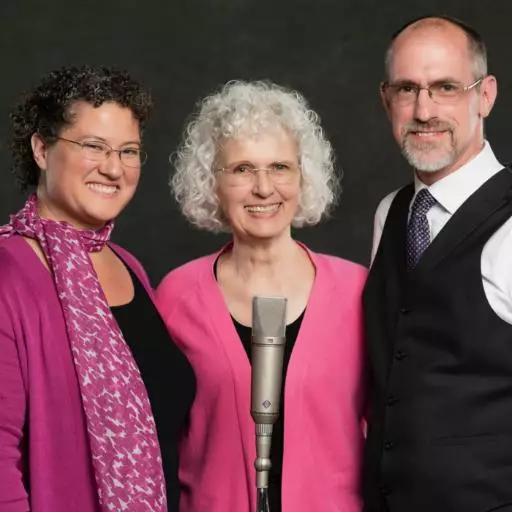God Knows…When my Direction Needs Correction – Part 2
Paul headed over to Macedonia. No doubt he revisited the churches at Philippi, Thessalonica, and Berea. Somewhere along the way a man named Titus brought the good news that the Corinthians had accepted the instruction in Paul’s letter to them. They had repented of their sins. Now they were growing again and being a blessing to others. Paul wrote a second letter to the Corinthians, reminding them again of the matchless love of Jesus, who “though He was rich, yet for your sakes He became poor, that you through His poverty might become rich.”
When Paul reached Corinth in person, he stayed three months to help the church. There, he wrote a letter to the little group of Christians in Rome, Italy. He hoped to come visit them and to preach also in Spain. We know this letter as Romans, another New Testament book. Paul powerfully pointed out that it is by faith in Christ that anyone who repents can find pardon and peace. “For I am not ashamed of the gospel of Christ, for it is the power of God to salvation for everyone who believes” (Romans 1:16).
Paul also wrote a letter, now called Galatians, to the churches in Galatia. It helped many misguided members regain Christian faith. Their lives began to produce the fruits Paul listed in Galatians 5:22: “love, joy, peace, longsuffering, kindness, goodness, faithfulness.”
Finally en route back to Jerusalem, Paul and Luke and some others traveled back up to Philippi, down to Troas on the Asian continent, and south toward Ephesus. When the boat he was on stopped at Miletus, 30-40 miles (50-60 km) from Ephesus, Paul disembarked and sent a message to the church leaders in Ephesus. They hurried to Miletus to see him. He gave them good counsel, then knelt down and prayed with them before going back on board. He knew he would not see them again—a sad parting.
Cargo was unloaded at Tyre (now in Lebanon) so Paul spent a week with the Christians there before going on to Caesarea. Then, Paul headed now for Jerusalem to conclude his third major trip. Paul knew he would find many enemies there. And he did.
At Jerusalem
In the Temple one day he was recognized by some of those who hated him. “Men of Israel, help!” they shouted. “This is the man who teaches all men everywhere against the people, the law, and this place; and furthermore he also brought Greeks into the temple and has defiled this holy place.”
Though Paul’s Greek friends were not with him in the Temple, a riot anyway. Paul was grabbed and dragged out of the Temple. As the angry mob was about to kill Paul, the chief captain of the Roman intervened. Soldiers arriving on the scene stopped the violence. The soldiers bound Paul with chains while the captain tried to find out what was going on. Everyone shouted a different answer. The captain couldn’t understand anything because of all the noise. He ordered the soldiers to take Paul to the barracks at the Castle of Antonia.
“Away with him!” screamed the mob, following along. The soldiers saved Paul’s life by shielding him from their violence. On the stairs to the barracks Paul asked if he could speak to the people. He bravely began to tell his personal story until the fury of the crowd broke out again. Soldiers hustled him inside. The captain intended to have him beaten, but when he learned that Paul was a Roman citizen, he changed his mind.
The next day Paul was brought before the same council in Jerusalem he had once been a member of. Such arguing broke out in the council that the Roman captain again saved Paul from harm by returning him to the castle.
That night the Lord spoke to Paul, “Be of good cheer, Paul; for as you have testified for Me in Jerusalem, so you must also bear witness at Rome.”
The next morning more than forty men vowed, “We will not eat or drink until we have killed Paul.” They didn’t know that a boy was listening. Paul’s nephew heard the assassination plot! It was risky, but he told the chief captain what he had heard.
The captain immediately called two of his head soldiers and ordered them to ready 200 soldiers, 70 horsemen, and 200 spearmen, for a trip to Caesarea. They would leave after dark for the 63-mile (100 km) trip to the city where the Roman governor lived. They would see that Paul arrived there safely. The commander also wrote a letter to Felix, the governor, explaining the case.
Decision Postponed – Forever
Felix knew that the charges brought by Paul’s enemies were false. Yet he kept him prisoner for the next two years. Felix treated him well and he and his wife, Drusilla, called Paul in for private talks. As Paul told them all about Jesus, the conscience of Felix was stirred. But instead of repenting and accepting Christ as his guide, Felix responded: “Go away for now; when I have a convenient time I will call for you.” But it never was convenient for Felix to accept Christ. Felix was later removed from office in disgrace.
Festus replaced him. When the new governor looked into the case of Paul, he asked, “Paul, do you want to go to Jerusalem for trial?”
Paul knew he would never have a fair trial in Jerusalem. So, as a Roman citizen, he asked to be sent to Rome to be judged by Caesar.
Festus replied, “You have appealed to Caesar? To Caesar you shall go!”
Where to find the story: Acts 18-26
Your Story Hour
PO Box 15
Berrien Springs, MI 49103
1-800-987-8854 (USA)
269-471-3701
info@yourstoryhour.org
For more information about this ministry please visit their website YourStoryHour.org or listen to their radio program on OnePlace.com.


